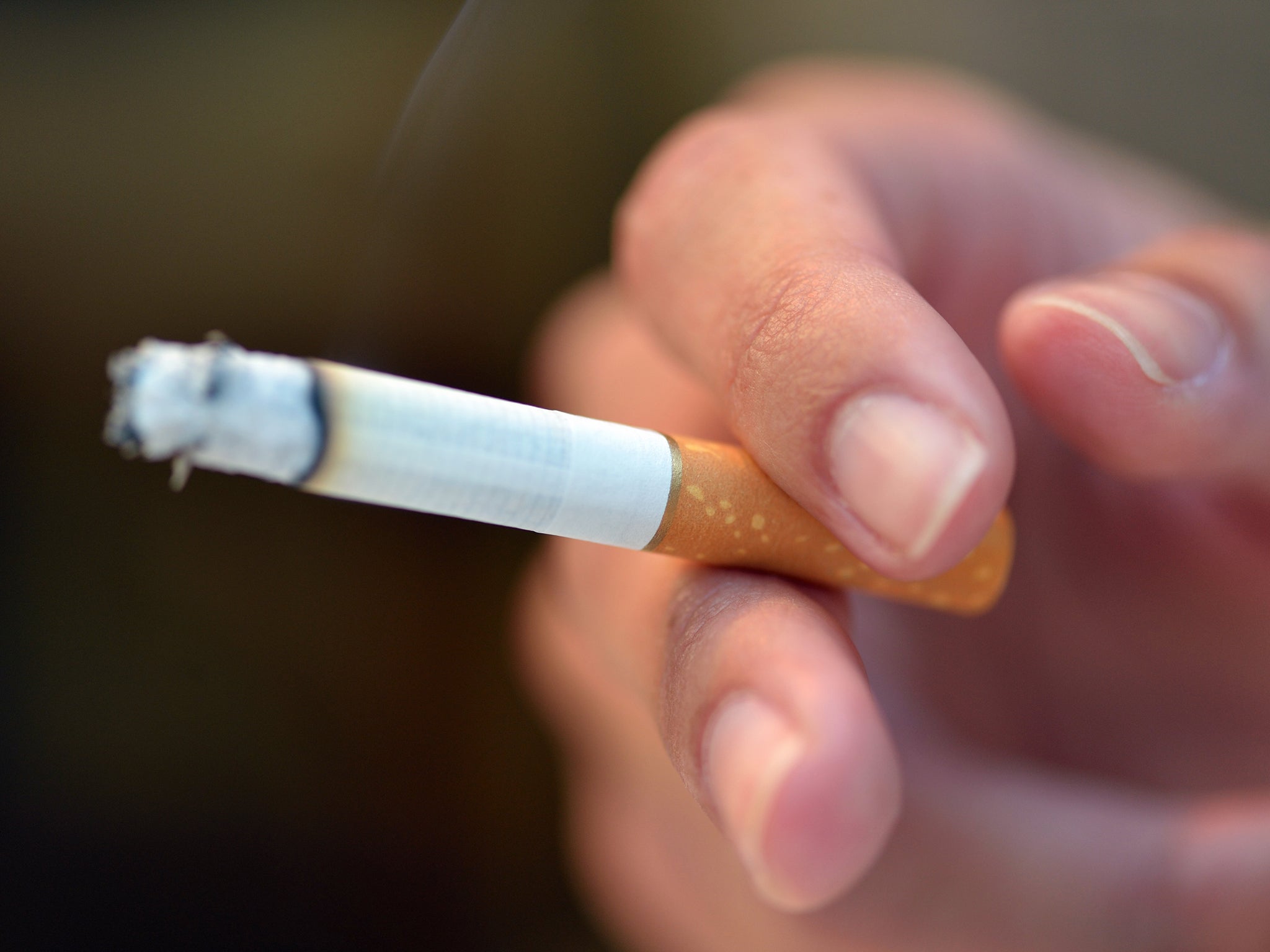Yes, sometimes developing cancer is just bad luck - but that doesn't mean you should keep smoking
Making healthier choices is not a fail-safe guarantee against cancer, but it can stack the odds in our favour

Your support helps us to tell the story
From reproductive rights to climate change to Big Tech, The Independent is on the ground when the story is developing. Whether it's investigating the financials of Elon Musk's pro-Trump PAC or producing our latest documentary, 'The A Word', which shines a light on the American women fighting for reproductive rights, we know how important it is to parse out the facts from the messaging.
At such a critical moment in US history, we need reporters on the ground. Your donation allows us to keep sending journalists to speak to both sides of the story.
The Independent is trusted by Americans across the entire political spectrum. And unlike many other quality news outlets, we choose not to lock Americans out of our reporting and analysis with paywalls. We believe quality journalism should be available to everyone, paid for by those who can afford it.
Your support makes all the difference.The front pages today have given a good airing to research that says developing cancer can be simply down to bad luck. This isn’t actually new. It’s well established that certain gene faults can trigger some types of the disease. But - as the researchers themselves point out - we know that there are also other factors at play.
Cancer is caused by damage to our DNA. Environmental factors like UV rays and lifestyle habits such as inhaling cancer-causing chemicals in tobacco, can damage our DNA – as can the process of ageing. The damage builds up over time and if a cell becomes too badly damaged it can start to multiply out of control – leading to cancer.
This means the risk of developing the disease depends on a combination of our genes, our environment and other aspects of our lives, many of which we can control.
People can’t change their genetic fingerprint. So it’s essential to invest heavily in new ways to detect the disease earlier when treatment is more likely to be effective, and to continue researching kinder and more effective ways of targeting treatments for the specific faults in the tumours of each cancer patient.
The good news is that four out of 10 cases of cancer can be prevented by making small lifestyle changes. So it’s absolutely vital to look at ways to help stop the disease developing in the first place.
Cancer Research UK recently announced that lifestyle factors like smoking, unhealthy diets, being overweight, excess alcohol, UV exposure and a lack of regular exercise have caused nearly 600,000 extra cases of cancer in the UK in the past five years. Making healthier choices is not a fail-safe guarantee against cancer, but it can stacks the odds in our favour. And there’s no time like the present to put into practice some of the key ways people can help protect themselves from the disease.
The single best thing anyone can do for their health in 2015 is to quit smoking. Tobacco is behind more than half of the preventable cases of cancer and causes more than one in four cancer deaths and more than one in five cases of cancer.
Smoking isn’t just linked to lung cancer – it can cause 14 different types of the disease and a range of other health problems like diabetes, arthritis, erectile dysfunction, blindness, and many other problems.
Alcohol increases the risk of up to seven different types of cancer including breast and mouth cancer. The more you drink the higher the risk of these and other diseases. Alcohol ups the calorie intake causing drinkers to put on weight - and obesity is a cancer risk too.
Drinkers can do themselves a favour by cutting down on alcohol this year. And anyone who needs a kick start to reducing the amount they drink could start by signing up for Cancer Research UK’s Dryathlon to stay off the booze for January.
Other changes like keeping a healthy weight, eating a good balanced diet can make a big difference along with keeping active and staying safe in the sun.
Today, around half of those diagnosed with cancer will survive more than 10 years, but by 2025 we want three quarters of all cancer sufferers to beat the disease. To achieve this we must attack cancer on every front.
Thanks to research we understand cancer better than ever before – and that’s why we’ve seen cancer survival rates double in 40 years. But as well as controlling and curing the disease we want to find more ways to prevent it in the first place.
So ditch those cigarettes, cut back on your booze and here’s to a happy, healthy new year.
Dr Emma Smith, Cancer Research UK’s senior cancer information officer
Join our commenting forum
Join thought-provoking conversations, follow other Independent readers and see their replies
Comments